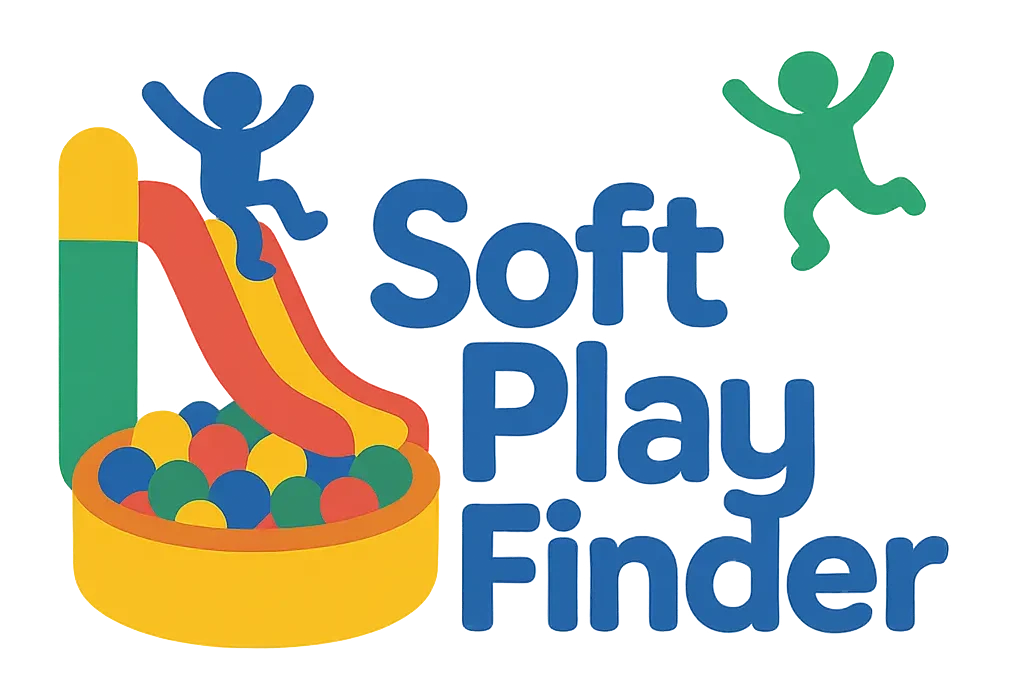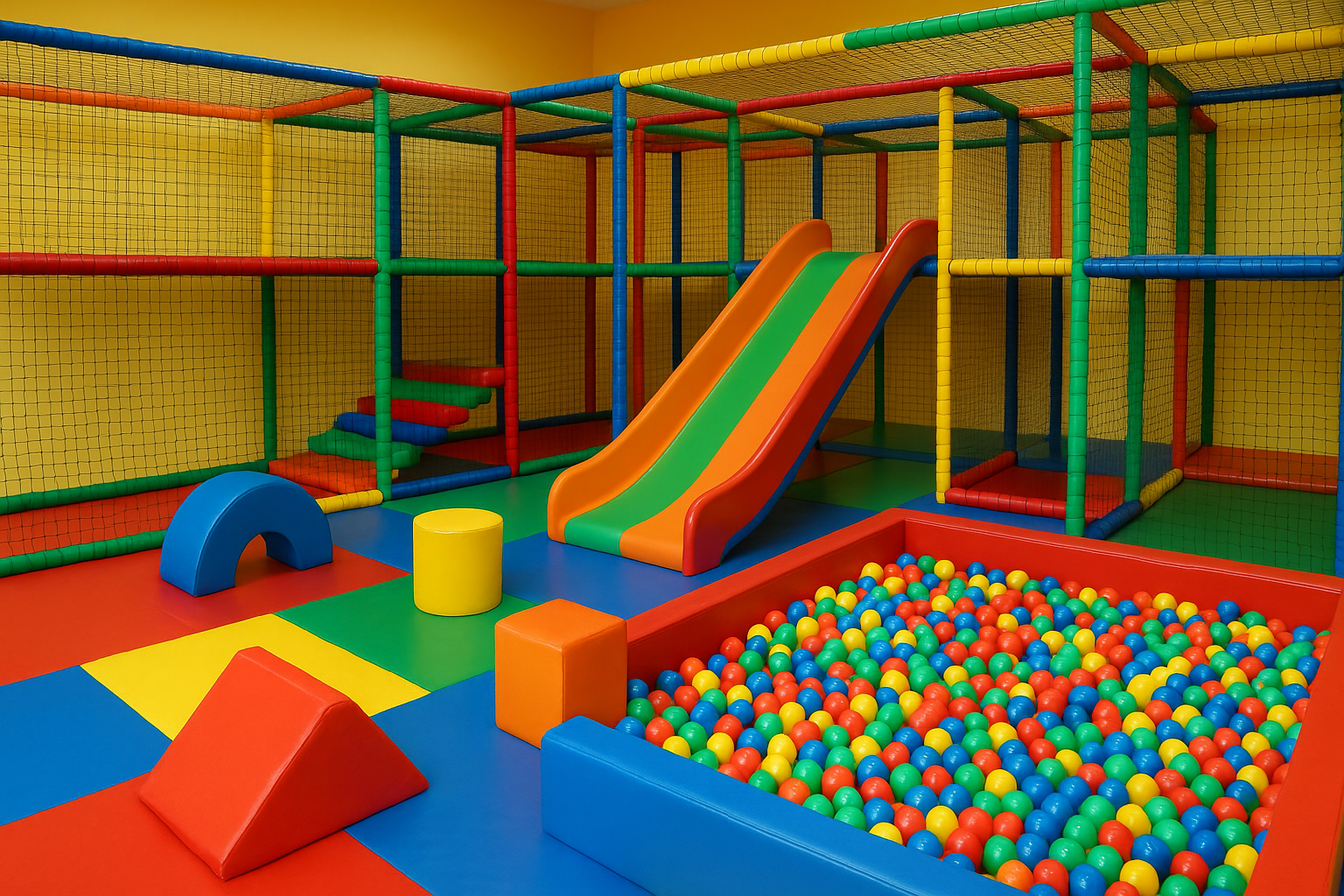Soft play centres aren’t just about surviving another school holiday – they are developmental goldmines disguised as chaotic fun. As a parent, you’ve probably appreciated the magic of soft play when the weather turns grim, but there’s so much more happening behind those foam obstacles and ball pits.
Let’s explore why soft play should be part of every child’s routine.
1. Soft Play Helps Kids Sleep Better
Let’s face it—parents love soft play because it exhausts kids (and that means better naps and earlier bedtimes!). All that climbing, jumping, and crawling is a full-body workout, helping little ones meet their daily activity needs while tiring them out naturally.
Why It Works:
- 30 minutes of soft play burns equivalent energy to a 2-mile walk for toddlers
- The NHS recommends 3 hours of daily physical activity for under-5s
- The varied movements engage different muscle groups more effectively than playgrounds
Pro Tip: Visit in the morning for maximum energy burn before naptime! Or schedule visits 4-5 hours before bedtime to align with natural circadian rhythms.
2. Boosts Motor Skills & Coordination
Soft play isn’t just chaos—it’s a hidden training ground for your child’s physical development.
- Gross motor skills (big movements) develop as they climb, slide, and balance.
- Fine motor skills (small movements) improve when gripping foam blocks or navigating obstacles.
Breaking Down the Benefits:
| Skill Type | Soft Play Activity | Real-World Application |
|---|---|---|
| Gross Motor | Climbing frames | Better balance for riding bikes |
| Fine Motor | Gripping foam blocks | Improved pencil control |
| Spatial Awareness | Navigating obstacles | Better sports performance |
Did You Know? The Early Years Foundation Stage (EYFS) Framework specifically highlights climbing and balancing activities as crucial for physical development.
The best part? They’re having so much fun, they don’t even realise they’re learning!
3. Encourages Social Skills & Friendship Building
Unlike structured classes, soft play lets kids interact naturally. They’ll:
- Take turns on slides
- Share ball pits (okay, sometimes…)
- Team up to conquer the big-kid climbing frame
It’s a low-pressure way for shy children to make friends and for energetic kids to learn social boundaries.
4. Builds Confidence & Independence
That proud moment when your toddler conquers the “scary” slide for the first time? Priceless.
Soft play encourages safe risk-taking, helping kids:
- Overcome fears
- Try new challenges
- Feel proud of their achievements
All while landing on soft, squishy mats (so you can relax too!)
5. A Sensory Wonderland for Curious Minds
From ball pits to textured foam shapes, soft play is a sensory paradise—especially for:
- Babies & toddlers exploring new textures
- Neurodiverse children who benefit from sensory input
Many UK centres now offer autism-friendly sessions with reduced noise and lights—check local listings!
6. Reduces Screen Time (Without the Battles)
Soft play encourages:
- Creativity (inventing games)
- Problem-solving (figuring out obstacle courses)
- 3+ hours of daily movement (as recommended by the NHS for under-5s)
7. Learning Disguised as Fun
Who knew soft play could teach colours, numbers, and even physics?
- Counting steps to the slide
- Naming shapes in foam blocks
- Discovering why balls float in the pit
Some centres even have themed zones (space, jungle, pirate ships) to make learning extra exciting.
Conclusion: Soft Play – The Smart Parent’s Secret Weapon
Beyond being a lifesaver on rainy days, soft play delivers measurable benefits for children’s physical, social and cognitive development. With the UK’s excellent network of centres offering everything from sensory sessions to birthday packages, it’s the guilt-free activity that actually delivers on its promises.
Now that you know the benefits, why not visit one of the UK’s top-rated soft play centres? Search our www.softplayuk.com for the top rated Soft Play near you!
Final Thought: Soft play = happier, healthier kids and slightly more relaxed parents.
Now, who’s ready for a giant slide race?

